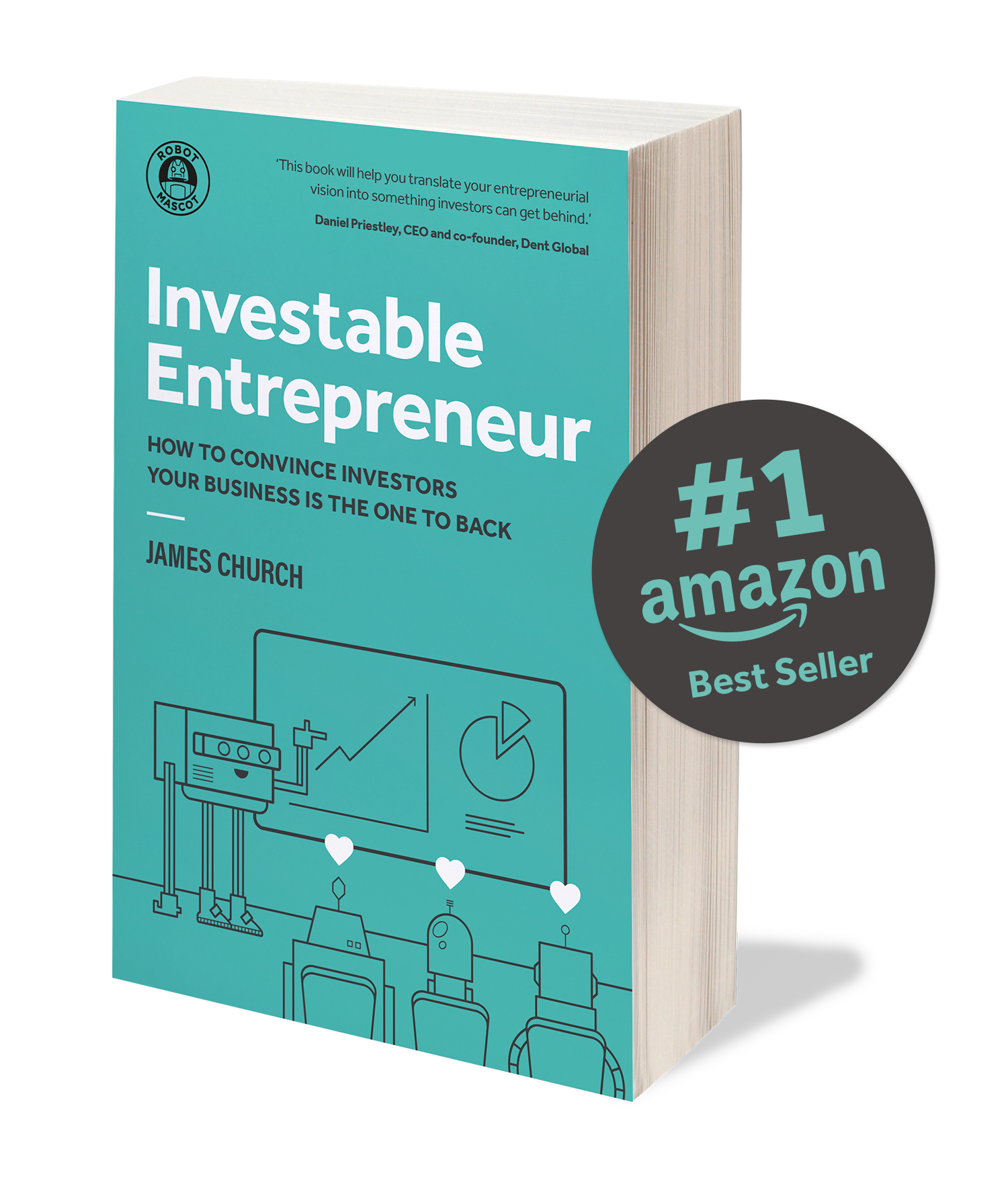

Funding Rounds Explained – A Guide for Startups
13th April 2023
Series funding is the process of raising capital for a growing startup or established business through a series of investment rounds. Funding rounds can be a long and complex process and it’s important that anyone seeking funding understands the various stages.
To help you prepare for investment, this comprehensive guide includes information on the following:
- Series funding: an overview
- Who’s involved in series funding?
- Types of series funding rounds: an overview
- What is Seed Funding and how does it work?
- What is Pre-Seed Funding and how does it work?
- What Is Series A Funding and how does it work?
- What Is Series B Funding and how does it work?
- What Is Series C Funding and how does it work?
- What Is Series D Funding and how does it work?
- Getting ready for funding rounds
- Negotiations and terms
- Legal considerations
- How many rounds of series of funding before IPO?
- What is venture round funding?
- What is a corporate round of funding?
- What is angel round funding?
- Series funding tips
Series funding: an overview
Series funding aims to help companies – especially startups – grow by providing them with the financial resources they need to expand their operations, hire new employees, develop new products and services and reach new markets. By participating in a series funding round, investors get the opportunity to invest in a company that has the potential to become a large and successful business.
Funding rounds are typically referred to as Series A, B, C and so on, and each round is designed to provide you with the funding you need to reach specific milestones and grow your business.
Series funding rounds differ from other types of funding, such as angel investing and initial public offerings (IPOs), in a number of ways. Unlike angel investing, which is typically done by high-net-worth individuals, series funding rounds are typically led by venture capital firms, which pool capital from a large number of investors. Additionally, series funding rounds typically involve a larger amount of capital than angel investing, and the terms of the investment are more structured and formalised.
Unlike IPOs, series funding rounds do not result in the public sale of the company’s stock, so your company remains privately owned. Additionally, the investment terms in a series funding round are typically more favourable to the company than in an IPO, as your company is able to retain more control over its operations and the terms of the investment are more flexible.
Who’s involved in series funding?
There are several key stakeholders involved in a series funding round, each with its own set of interests and goals. These stakeholders include:
Entrepreneurs
The founders and owners of the company who are seeking funding to grow their business. They play a critical role in securing investment capital, communicating the vision and potential of the company to investors, and negotiating the terms of the investment.
Venture Capitalists (VCs)
VCs are professional investors who provide capital and guidance to startups in exchange for equity ownership. They play a key role in evaluating the potential of your company and determining whether to invest.
Investment Banks
Financial institutions that help companies raise capital by acting as intermediaries between you and potential investors. They may also provide advice and guidance on financial and strategic matters.
Other Financial Institutions
This includes hedge funds, private equity firms and institutional investors, who may provide capital and expertise to companies seeking funding.
Existing Investors
These are individuals or institutions who have already invested in you and your company and who may participate in subsequent rounds of funding to maintain their ownership stake.
In a series funding round, each of these stakeholders has a role to play and a set of goals to achieve. Entrepreneurs are focused on securing the funding they need to grow their business, while venture capitalists and other financial institutions are focused on evaluating the potential of your company and maximising their investment return. Investment banks play a critical role in bringing the different parties together and facilitating the negotiation process. Ultimately, all of these stakeholders must work together to ensure the success of the funding round and the growth of the company.
Types of series funding rounds: an overview
In summary, the different types of series funding rounds are typically referred to as Series A, B, C, and so on, and each round is designed to provide you with the funding it needs to reach specific milestones and grow its business.
The main characteristics and goals of each type of series funding round are as follows:
Series A
This is the first round of institutional funding for a company, and it typically involves an investment of several million pounds. The goal of Series A funding is to provide you with the capital it needs to expand its operations, hire new employees, and develop its product or service.
Series B
This round of funding typically takes place after a business has made significant progress and demonstrated its ability to generate revenue. The goal of Series B funding is to provide you with the capital it needs to further scale its operations and enter new markets.
Series C
This round of funding takes place when a business has established itself as a leader in its market and is ready to expand globally. The goal of Series C funding is to provide you with the resources it needs to become a dominant player in its industry.
Series D
This round of funding is typically the final round of private funding for a company before it goes public. The goal of Series D funding is to provide you and your business with the capital it needs to prepare for an initial public offering (IPO) and go public.
And beyond…
Funding rounds can continue for as long as needed. For example, in 2020 disruptor bank Monzo reached Series F, liftsharing app Lyft reached Series I and rocket manufacturer SpaceX reached Series J.
Read about these funding rounds below.
Each type of series funding round has its own characteristics and goals, and the amount of funding, terms of the investment, and ownership stake will vary depending on the stage of your company and its growth trajectory. The key is to ensure that each round of funding provides you with the resources it needs to reach its next set of milestones and continue growing its business.
What is Seed Funding and how does it work?
Seed funding is an early round of financing for a startup or early-stage company. It is typically used to finance the development of a new product, service or business idea and to build your company’s foundations. Seed funding is typically a smaller investment than later-stage funding rounds and ranges from a few thousand to several million pounds. Seed funding takes place prior to a later-stage Series round.
In seed funding, you will typically sell a portion of your company’s equity to investors in exchange for the capital it needs to grow. The investment is typically led by angel investors, friends, and family members, and may include participation from seed funds and other early-stage investors. The terms of the investment are less structured and formalised than in later-stage funding rounds.
The goal of seed funding is to provide you with the resources it needs to validate its product or service, build a minimum viable product and start generating revenue. Seed funding is an important first step for many startups, as it provides them with the capital they need to take their idea from a concept to a functioning business. It is also a critical moment for entrepreneurs, as it allows them to bring in outside capital and expertise and build a network of advisors and partners.
What is Pre-Seed Funding and how does it work?
Pre-seed funding is an early stage of financing for a startup or early-stage company, typically before seed funding. It is typically a smaller investment than seed funding and ranges from a few thousand to several hundred thousand pounds.
As with seed funding, you might sell a portion of its equity to investors in exchange for the capital. The investment is typically led by angel investors, friends and/or family members, and may include participation from pre-seed funds and other early-stage investors. As with seed funding, the terms of the investment are less structured and formalised than in later funding rounds.
The goal of pre-seed funding is to provide your company with the resources it needs to get off the ground, test its product or service, and build a prototype or minimum viable product.
Pre-seed funding is a relatively new concept, and it is often seen as a way to bridge the gap between the idea stage and seed funding. It provides startups with the resources they need to get started while allowing investors to get in on the ground floor and help shape your company’s future.
What Is Series A Funding and how does it work?
Series A funding is the first round of institutional funding for a startup or growing company. It typically involves an investment of several million pounds and should provide you with the capital you need to expand operations, hire new employees and develop your product or service.
In a Series A funding round, you will normally sell a portion of its equity to investors in exchange for the capital it needs to grow. The investment is typically led by venture capital firms, and the terms of the investment are structured and formalised. The goal of Series A funding is to help you reach key milestones and establish a solid foundation for future growth.
The Series A funding round is a critical moment in a company’s growth trajectory. It provides your company with the resources it needs to develop its business and scale its operations, and it signals to the market that the company has significant potential for growth and success.
READ: How much time and money should seed and series A startups spend on market research?
What Is Series B Funding and how does it work?
Series B funding is the second round of institutional funding, following the initial Series A funding round. It typically involves a larger investment than Series A, ranging from several million to tens of millions of pounds. The goal of Series B funding is to provide your business with the capital it needs to scale its operations, enter new markets and continue its growth trajectory.
In a Series B funding round, the investment is typically led by venture capital firms and may include participation from existing investors as well as new ones. The terms of the investment are structured and formalised, and the investment may also include provisions for governance, management and future funding rounds.
The Series B funding signals to the market that your company has demonstrated its ability to generate revenue and achieve significant milestones and it provides the business with the resources it needs to continue its growth. By the time your company reaches Series B funding, it should have a clear and compelling vision for its future, a well-defined business model and a track record of success.
What Is Series C Funding and how does it work?
Series C funding is a later-stage round of institutional funding and usually involves a significant investment, ranging from tens of millions to hundreds of millions of pounds. The goal of Series C funding is to provide your company with enough capital to become a dominant player in its market and often expand globally.
In a Series C funding round, the investment is usually led by venture capital firms and may include participation from existing as well as new investors.
By the time you reach Series C funding, you should have a proven track record of success and a clear vision for its future. The capital provided by Series C funding is used to fund your company’s expansion into new markets, acquire new technology and talent, and solidify its position as a leader in its industry. The Series C funding round is often seen as a precursor to an initial public offering (IPO) and the eventual exit of the company’s investors.
What Is Series D Funding and how does it work?
The aim of Series D funding is to provide you with the capital it needs to continue its growth, expand globally and prepare for an eventual exit, such as an initial public offering (IPO) or acquisition.
The capital provided by Series D funding is used to fuel the business’ growth and prepare it for an eventual exit. The Series D funding round is often seen as a final step before an IPO or acquisition, and it is an opportunity for your business to solidify its position as a leader in your industry.
Getting ready for funding rounds
The preparation process involved in a series funding round is critical to the success of the funding round and therefore the future of your company. The process typically involves several key steps:
Due diligence
Before a series funding round, you and your company must undergo a thorough due diligence process to ensure that it is prepared for the investment. This involves reviewing and disclosing the company’s financials, intellectual property, and business operations, among other things. The due diligence process is intended to provide investors with a comprehensive understanding of the business and its operations and to identify any potential risks or challenges.
Financial forecasting
As part of the preparation process, you must prepare financial projections and a detailed business plan. The financial projections should provide investors with a clear understanding of the company’s revenue and expenses, its current financial position, and its future growth prospects. The business plan should outline your strategy, competitive landscape and target market, among other things.
Pitch preparation
Finally, the business must prepare a compelling pitch to present to potential investors. The pitch should clearly articulate your vision, business model, and product or service offering, and highlight the key drivers of its growth and success. The pitch should also address any potential challenges and risks, and provide a clear explanation of how the business plans to address them.
Overall, the preparation process for a series funding round is a comprehensive and demanding process that requires significant time, effort, and attention to detail. By taking the time to properly prepare for the funding round, companies can increase their chances of success and secure the investment they need to grow and succeed.
Negotiations and terms
Negotiating the terms of a series funding round is an important step in securing the investment needed to grow and succeed as a company. More importantly, you will want to understand the key negotiation points and terms to ensure a successful outcome.
The following are some of the key negotiation points and terms involved in a series funding round:
Valuation
The valuation of your company is one of the most important negotiation points in a series funding round. It determines the price at which investors will purchase shares in the business and the overall ownership structure of your company. The valuation should be based on a number of factors, including the company’s financial performance, market trends and the potential for future growth.
Equity ownership
Another important negotiation point is equity ownership, which determines the distribution of ownership in your company among its shareholders. In a series funding round, investors will typically take a portion of the company’s equity in exchange for their investment. The equity ownership structure should be carefully negotiated to ensure that you (the company’s founders) retain a significant ownership stake in the business, while also providing investors with a reasonable return on their investment. The amount of equity sold goes hand-in-hand with your valuation – as the two are inextricably linked by the maths – so you must be aware that any negotiation on your valuation will effect yours (and your investors) eventual equity owenership.
Board representation
Investors may demand a seat on your company’s board of directors as a condition of their investment. This gives them a voice in your strategic direction and a say in important business decisions. The number of board seats and the role and responsibilities of board members should be clearly defined in the investment agreement.
Other key negotiation points and terms in a series funding round may include:
- voting rights
- the use of proceeds
- Covenants
- terms of any warrants or options issued to investors.
It is important to understand all of the key negotiation points and terms involved in a series funding round and to negotiate a fair and reasonable agreement that protects the interests of both your company and your investors.
Legal considerations
The legal considerations involved in series funding rounds are complex and require careful attention to ensure that the investment is structured properly and complies with applicable laws and regulations. For example:
Company formation
The first step in preparing for a series funding round is to properly form the company. This typically involves incorporating the company and obtaining any necessary licences and permits – the former happening at the pre-seed and/or seed stage depending on what the first round was. The company should also establish governance structures and policies, such as the terms of its articles of incorporation and bylaws, to ensure that it is operating in compliance with applicable laws and regulations.
Financial regulations
One of the most significant legal factors to consider during a series funding round is the applicable financial regulations. These laws oversee the issuance and sale of securities, such as shares and bonds, and vary depending on the type of security being offered and the jurisdiction in which the fundraising takes place. In order to raise capital, companies must comply with these regulations, which includes providing detailed information about their business and financial performance, as well as disclosing the terms of the investment to potential investors.
Tax implications
Another key legal consideration in a series funding round is tax implications. The investment itself, as well as the sale of equity, may have tax implications for both you and your investors. It is important to consult with a tax professional to understand the tax implications of the investment and to structure the investment in a tax-efficient manner.
The UK’s EIS scheme is popular among Series investors. Click here for more information on UK government schemes.
This is a complex part of the process and will require the assistance of experienced legal professionals to ensure that the investment is structured properly and complies with all applicable laws and regulations. By doing so, you will minimise the risk of legal disputes and ensure the success of their funding round.
How many rounds of series of funding before IPO?
There is no set number of rounds of series funding before an initial public offering (IPO). The number of rounds depends on a variety of factors, including:
- the size of the company
- the pace of its growth
- the availability of investment capital.
Some companies may only go through one or two rounds of series funding before going public, while others may go through several rounds over a number of years.
In general, the more rounds of series funding you go through, the more mature and established your business is and the closer it is to go public. However, the number of rounds is not the only determining factor and some companies may go public without ever having gone through a series funding round.
Ultimately, the goal of series funding rounds is to provide companies with the investment capital they need to grow and succeed, and the number of rounds your company goes through will depend on its individual circumstances.
What is venture round funding?
Venture round funding is a type of financing that is provided to early-stage companies, typically startups, in exchange for equity ownership. Venture round funding is typically provided by venture capital (VC) firms, which specialise in investing in high-risk, high-potential startups.
In exchange for the investment, venture capitalists take an ownership stake in your company and may also provide strategic and operational support to help your business achieve its goals.
Venture round funding usually comes in several rounds, such as those mentioned above: seed funding, Series A, B and so on.
Venture round funding is a critical component of the startup ecosystem and is essential for many early-stage companies to get off the ground and achieve success.
It is also a high-risk, high-reward type of investment, and companies that are successful in securing venture funding are often able to achieve significant growth and success in a relatively short period of time.
READ: A comprehensive guide to venture capital
What is a corporate round of funding
A corporate round of funding is a type of financing in which a business raises capital from a corporate entity, such as a large corporation, as opposed to individual investors or venture capital firms.
Corporate funding rounds are typically used by established companies that are seeking to expand their operations or pursue new growth opportunities. The funding is usually provided in exchange for equity in your company, and the corporate investor may also take an active role in operations and decision-making processes.
Corporate funding rounds can provide companies with several benefits, including access to capital, exposure to new markets and expertise and knowledge from the corporate investor. Additionally, a corporate funding round can provide you with credibility and validation, as well as potentially valuable partnerships and strategic relationships.
However, corporate funding rounds can also involve complex negotiations, as the corporate investor may have different goals and expectations than you. Additionally, a corporate funding round may limit your flexibility and autonomy, as the corporate investor may want control over aspects of the business.
Corporate funding can be a valuable tool for established companies that are seeking to expand their operations and achieve new levels of growth. That said, it is important for companies to carefully consider the benefits and risks involved, and to carefully negotiate the terms of the funding agreement to ensure that your goals and objectives are aligned with those of the corporate investor.
What is angel round funding?
Angel round funding is a type of financing in which a startup raises capital from a group of individual investors, known as angel investors. Angel investors are typically high-net-worth individuals who invest their own personal funds in early-stage startups in exchange for equity ownership in your company.
Angel round funding is typically the first type of outside investment that a startup will receive. The funding can range from a few thousand pounds to several million pounds and the equity ownership can range from a small percentage to a controlling stake in your business.
Angel round funding is important for startups because it provides early-stage capital that can be used to develop the product, build the team and establish market traction. Angel investors can also provide valuable mentorship, guidance, and connections to the startup’s management team.
However, angel round funding can also involve complex negotiations and due diligence, and it is important for startups to carefully consider the terms of the investment and the potential impact on your company’s ownership structure and decision-making processes.
Angel round funding can be a valuable source of capital and support for early-stage startups. However, it is important for startups to carefully consider the benefits and risks involved, and to carefully negotiate the terms of the investment to ensure that your goals and objectives are aligned with those of the angel investor.
READ: 11 Essential Things Angel Investors Look For in a Startup
Series funding tips
To ensure a successful outcome of series funding, it is important to follow best practices and tips for navigating the process. For example:
Communication strategies
Communication is key in a series funding round. Companies should develop clear and concise communication strategies to effectively communicate with potential investors and stakeholders. This includes providing regular updates on business performance and growth and being transparent and honest about any challenges or obstacles your business may face.
Building relationships
Building strong relationships with potential investors and stakeholders is another critical factor in a successful series funding round. Companies should take the time to understand the interests and goals of potential investors and work to build trust and credibility with them.
Preparation
Preparation is key in a series funding round. Companies should conduct thorough due diligence and financial forecasting and develop a well-structured pitch that effectively communicates their vision and growth plans. Read more above.
Valuation
Valuation is a key negotiation point in a series funding round. Companies should be realistic about the value of their business and be prepared to negotiate the terms of the investment to ensure that both you and your investors are protected.
Legal considerations
Companies should be aware of the legal considerations involved in a series funding round, including company formation, financial regulation and tax implications. They should seek the advice of experienced legal professionals to ensure that their investment is structured properly and complies with all applicable laws and regulations.
Avoid common pitfalls
Companies should be mindful of common pitfalls in a series funding round, such as failing to understand the interests and goals of potential investors, or not preparing for thorough due diligence and conducting financial forecasting.
If you’re seeking funding or preparing your business for investment, why not download a free copy of our bestselling book Investable Entrepreneur. It’s full of great advice for founders and entrepreneurs who want to build a highly scalable business. You can download it here.
Learn how to convince investors
Investable Entrepreneur takes you through our winning methodology – the process we use to increase our client’s chances of raising investment by more than 30x.
“This book will help you translate your entrepreneurial vision into something investors can get behind.”
Daniel Priestley, CEO and founder, Dent Global and four times best-selling business author

Keep up to date with what we’re up to via email






Copyright ©Robot Mascot Ltd. All rights reserved.








